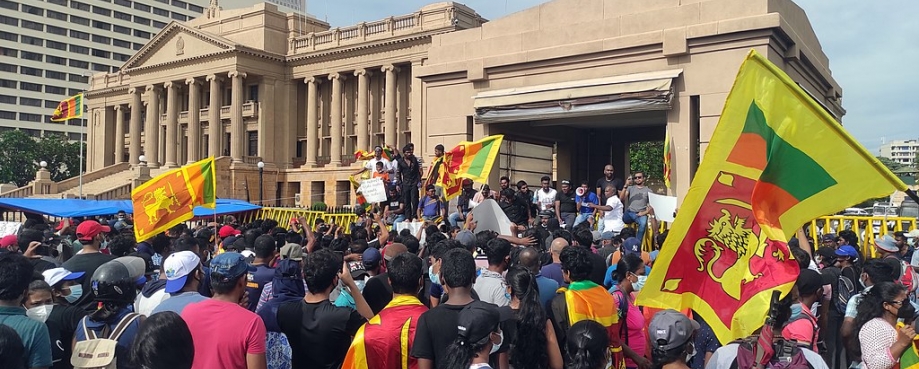
Over the last two years the term ‘supply chain’ has become almost common parlance with media reports of their disruption affecting the supply of goods worldwide. Whether the result of significant global events, such as the Covid-19 pandemic, or local issues such as Brexit, or the 2021 blockage of the Suez Canal, the precarity and importance of our supply chains for social and economic stability are well documented.
Recently, Russia’s invasion of Ukraine and responding international sanctions has caused global shortages and sky rocketing prices of essentials such as diesel/petrol, wheat, cooking oils and gas. This knock-on-effect will push many already vulnerable people into poverty and has contributed to the deteriorating economic crises in countries such as Sri Lanka and Ethiopia.
Whilst these shocks affect us all, they are devastating for local businesses and workers who face losing their livelihoods and within violent circumstances, their lives too.
Today, there are many countries in politically fragile and conflict affected circumstances. It is widely understood that with current geopolitical tensions and the number of people forcibly displaced rapidly increasing, there will be more on the horizon too.
Our experience at ETI indicates a worrying trend; that businesses are generally not performing the levels of due diligence and risk assessment necessary to plan for shocks and mitigate negative impacts to workers within high-risk contexts. Whether faced with the 2021 coup in Myanmar, or 2022 Russian invasion of Ukraine, our membership has primarily focussed on responding once crisis has occurred, bringing with it myriad challenges to performing effective human rights due diligence (HRDD).
We cannot pretend that it is easy or even possible to predict such shocks and interruptions. However, there are lessons to be learned when it comes to identifying the warning signs, better understanding the risks, and putting measures in place to monitor and mitigate against them.
By working with civil society, trade unions and other companies, business can plan and adapt as risks to workers within a supply chain, supplier or geography increase. This is not only good business sense, in commercial terms, but also regarding the wider responsibilities of business to respect human rights. As EU and other legislation moves towards a legal requirement for Human Rights and Environmental Due Diligence, there is little to lose and everything to gain by businesses taking up a proactive, and when necessary, enhanced approach to human rights due diligence (eHRDD).
So, what can be done?
Enhanced Human Rights Due Diligence
At present, ETI is convening its membership to implement eHRDD in areas affected by the invasion of Ukraine, coup in Myanmar and most recently, economic turmoil in Sri Lanka. Together, we are undertaking work to better understand how to implement the UN Guiding Principles on Business and Human Rights (UNGPs) in Conflict Affected and High-Risk Areas (CAHRAs) and inform the process of better due diligence, risk assessment and mitigation. This should not only involve business, but trade unions and NGOs who provide invaluable insights from those directly affected.
Tools and guidance to navigate rising trends
More generally, work is needed to develop the tools, guidance and ‘business case’ required to mitigate risk in conflict affected and high-risk areas of the future. The UNGPs provides the framework, and there is both data and practice from the emergency and humanitarian sectors that can be drawn upon, alongside our learnings responding to current crises. We need to also consider the indicators that point to, if not predict, higher risk. Most of this information is already available, but strong consolidation, analysis and presentation remains vital to encouraging application by business.
Proactive and prompt response
Key lessons can be drawn from both the Covid-19 pandemic and initial responses to Russia’s invasion of Ukraine. Those companies who worked with supply chain partners to assess the likely impact and mitigate risks were and continue to be more effective than those who took unilateral action after the fact.
A knee-jerk reaction by buyers too often means that all the risk and cost of doing business is born by the supplier. This can result in unnecessary termination of workers and unpaid wages at a time of significant crisis. The negative impacts of conflict or instability cannot be avoided, but how we learn and mitigate against them can be the difference between life and death for those already living hand to mouth.
While there is no one simple way to better understand and prepare for heightened risk, the last few years has made it abundantly clear that failing to do so comes at a huge human and financial cost.
